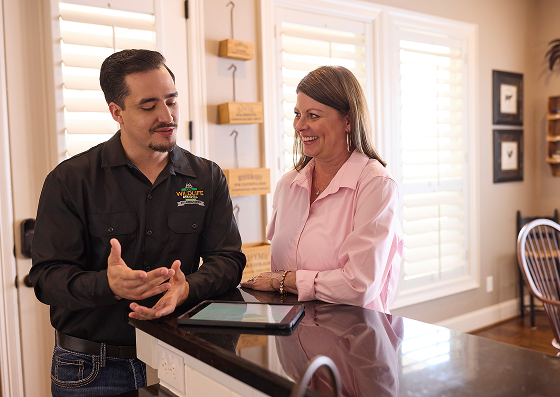Are Pest Control Franchises Profitable?
Yes, pest control franchises can be highly profitable when operated efficiently in high-demand markets with strong franchisor support. With recurring revenue models, steady service demand, and healthy margins, many franchise owners report six-figure earnings within a few years.
Starting a business in pest control may not sound glamorous, but it taps into a steady and recession-resistant market. From termites damaging homes to rodents nesting in commercial buildings, pest problems require urgent, professional solutions. Pest control franchises offer a proven business model designed to meet this consistent demand.
Pest control services can be profitable, especially when key factors are aligned, such as location, operational efficiency, brand support, and market saturation. This article explores the financial potential of pest control franchises, including average costs, revenue expectations, and what successful franchise owners are actually earning today.
Understanding the Pest Control Industry

The pest control industry plays a critical role in both public health and property protection. According to IBISWorld, the U.S. pest control market is valued at over $20 billion and continues to grow steadily, driven by urban expansion, climate-related pest migration, and increased awareness of health hazards linked to infestations. Residential demand remains strong, but commercial and industrial contracts also provide lucrative opportunities for recurring revenue.
Services range from general pest management, like ants, roaches, and spiders, to more specialized control involving termites, bed bugs, and wildlife removal. Many pest control businesses also expand into adjacent services such as insulation replacement and sanitation treatments. This diversity helps franchises maintain cash flow year-round, even during off-peak seasons. With both preventative and emergency-based offerings, pest control remains one of the most durable segments in the home services industry.
How Pest Control Franchises Make Money

Pest control franchises generate income through a mix of one-time services and recurring contracts. Common revenue sources include residential treatments, commercial service agreements, wildlife removal, termite prevention programs, and seasonal mosquito control. Many franchises also offer bundled service packages that keep customers on monthly or quarterly plans, creating reliable cash flow.
In addition to service calls, some franchises upsell value-added options like attic restoration, exclusion work, sanitation treatments, and smart pest monitoring devices. These extra services not only boost average ticket value but also deepen customer relationships. With strong retention strategies and efficient routing, pest control franchises can build profitable, scalable operations with high customer lifetime value.
Typical Costs of Owning a Pest Control Franchise
Starting a pest control franchise involves several upfront and ongoing expenses. Initial investment typically ranges from $50,000 to $150,000, depending on the franchise brand, territory size, and service offerings. This amount often includes the franchise fee, training, equipment, initial marketing, and a branded vehicle—one of the most visible tools in the business.
Ongoing costs include royalty fees, usually 5% to 10% of gross revenue, and national marketing contributions, which can run from 1% to 4%. Franchisees are also responsible for fuel, insurance, technician wages, chemicals, and maintenance of vehicles and equipment. While the startup costs can be significant, many owners report a faster ramp-up period compared to launching an independent business—thanks to brand recognition and operational support from the franchisor.
Factors That Affect Franchise Profitability
While pest control franchises offer promising returns, profitability isn’t guaranteed. Several key factors influence how much you can earn, and understanding each one can help you make smarter decisions before and after you invest.
1. Location and Market Demand
Franchise success often hinges on territory quality. High-density urban and suburban areas offer greater access to residential and commercial clients, which translates to more frequent service calls and recurring revenue. Meanwhile, rural areas may see slower growth but could also face less competition.
2. Brand Recognition and Franchisor Support
Partnering with a well-known franchise provides a built-in reputation, which helps with customer trust and lead generation. Strong franchisors also offer tools like scheduling software, vendor discounts, marketing templates, and business coaching—all of which can significantly lower your learning curve and boost profitability.
3. Operational Efficiency
Profit margins are closely tied to how well the business is run day-to-day. Factors like fuel management, route planning, technician productivity, and equipment maintenance all affect cost control. Franchises that optimize these variables typically see better net margins and faster growth.
4. Licensing and Local Regulations
Each state (and sometimes city) has its own pest control licensing requirements, safety standards, and application rules. Some jurisdictions may require additional training or certification, which can add time and cost. Staying compliant not only avoids legal issues but ensures your business can operate without interruptions.
Pros and Cons of Buying a Pest Control Franchise
Before jumping into franchise ownership, it’s important to weigh both the advantages and potential drawbacks. The table below breaks down what you can expect from a pest control franchise model, so you can decide if it fits your business goals and lifestyle.
| Pros | Cons |
| Established Business Model | Franchise Fees and Royalties |
| Proven systems and training reduce startup risk and speed up your launch. | Ongoing royalty and marketing fees can cut into profits over time. |
| Built-In Brand Trust | Limited Flexibility |
| Customers often trust known brands, making it easier to attract leads. | Franchise agreements may limit your ability to customize services or pricing. |
| Operational Support | Territory Restrictions |
| Backend tools, training, and marketing resources are usually provided. | Your service area is fixed and could limit expansion opportunities. |
| Easier Financing | Brand Risk |
| Franchises are more appealing to lenders thanks to lower failure rates. | Negative press or poor reviews from other locations can impact your reputation. |
Examples of Profitable Pest Control Franchises
Franchise performance can vary, but many pest control business owners report strong revenue growth and solid profit margins after their first few years in operation. In high-demand areas, it’s not uncommon for franchisees to generate annual revenues exceeding $500,000, especially when they offer both residential and commercial services.
Example 1: Suburban Multi-Service Operation
A franchisee operating in a fast-growing suburban region started with a general pest control model and added termite inspections, exclusion services, and commercial accounts within the first 18 months. By the end of year three, the business was generating over $600,000 in annual revenue with a team of three technicians and one office staff member. The owner reported a net profit margin of 18%, attributing success to strong customer retention and optimized technician routes.
Example 2: Seasonal Specialty Service
Another owner launched in a southern state with a focus on mosquito and tick control. Despite the seasonal nature of the business, they built a strong recurring customer base by offering package deals and local referral incentives. By year two, they reached $280,000 in revenue with a part-time team, lean overhead, and a net profit of roughly 25% during peak months.
Across the board, the most profitable franchisees tend to operate in growth markets, manage costs efficiently, and leverage franchisor resources to scale sustainably. With the right market conditions and effort, pest control franchising can deliver strong long-term returns.
Is a Pest Control Franchise Right for You?
Not everyone is cut out for franchise ownership but for the right person, a pest control franchise can offer a rewarding and profitable path. Ideal candidates are often organized, proactive, and comfortable managing both people and operations. You don’t need a background in pest control, but business acumen, people skills, and a willingness to follow proven systems are essential.
This business can be especially appealing to former military personnel, blue-collar professionals, or those coming from service industries who are looking for more independence and income potential. It’s also a good fit for hands-on operators who enjoy solving problems and building strong community relationships. However, if you prefer complete creative control or dislike following set procedures, the franchise model might feel too restrictive. Taking an honest look at your personality, goals, and risk tolerance can help you determine if this route makes sense.
Still unsure about fit? Explore this guide on owning a pest control business and how it compares to franchising.
